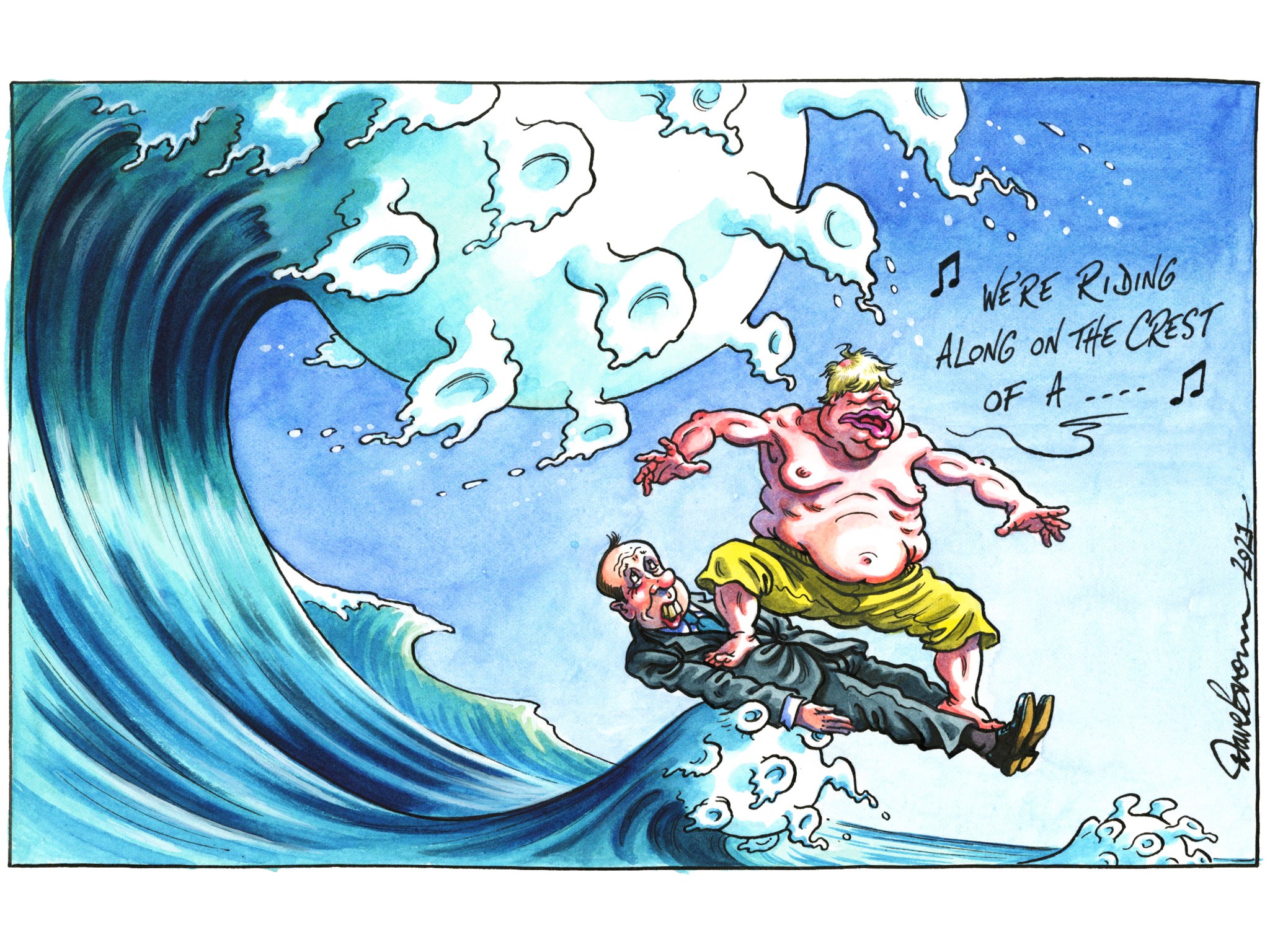For many months now, ministers have attempted to reassure the public that policy would be driven by “the science” and key decisions determined by “data not dates”. Most of the avoidable errors of the last 15 months – many clear enough at the time and visible without hindsight – have been because the government found political pressures and temptations more persuasive than expert advice.
In the push-and-shove of Whitehall, it seems as if the politicians managed to push the experts further than was wise. As now we realise, and as no less central a figure than Dominic Cummings has confirmed, many thousands of people lost their lives who did not need to do so because of these misjudgments.
Is it possible that the same mistakes are being made again? That the relaxations of lockdown have been proceeding too rapidly? And that the further planned unlock on 21 June is too risky to go ahead? The evidence to support these claims is certainly accumulating. Ministers seem far too willing (at least in public) to stick to their roadmap timetables and not announce a decision on the scheduled 21 June relaxation until 14 June. However, the real-time evidence coming in may already be enough to tip the balance.
Households, couples getting married, airlines, nightclubs, pubs, restaurants and other businesses need clarity as soon as possible about what the situation will be in a matter of weeks. The rhetoric has grown more cautious as the data flow has deteriorated, but the presumptions around 21 June persist. It is not too early for the guidance now to be flipped, so that 21 June should be postponed unless the evidence on cases and the spread of the virus show improvement in the next few days and weeks.
This is not to rule out another unlock on 21 June, but politicians must be straight with the public about the way the balance of probabilities is changing. It would also better manage expectations and lessen the disappointment – and add to the joy if things do indeed settle down and the statistics start trending in the right direction.
Nor is the international picture getting much brighter. The loss of life in India and now in Peru are the latest reminders that in most of the world the pandemic is as pernicious and deadly as ever, and that vaccination programmes have hardly started, if at all. It is little wonder that new variants are rapidly evolving, and as long as they do, the risk to health in the richest and the poorest corners of the world remains high. It is impossible to confine Covid-19 to one part of the world. Fine-tuning a pandemic in one country is a foolish game, and sticking rigidly to a roadmap for political reasons or to save face would be unforgivable.
Indeed, some modest reimposition of controls may be necessary to allow the vaccination programme to catch up with the spread of the newly renamed Delta variant (also known as the Indian variant). Given the well-known lags between initial Covid infection, a positive test, very serious illness and death, the last relaxation of lockdown, on 17 May, may well have contributed to the recent uptick in the number of cases and hospital admissions now, driven also by the Delta variant.
It is true that the vaccination programme has radically changed the context compared to the conditions prevailing last year – but not so much that the country can afford to be reckless in reopening the economy. The links between infections, serious illness and fatality are weaker than last year, but have not been broken. Besides, the number of people who have had the two doses of vaccine required to provide the best levels of protection are still not near enough to herd immunity levels for us to be confident about a further reopening of the economy.
In personal health as in public health, decision making is all about balance. Delaying the next unlock by, say, a month or two, would damage the economic recovery further, delay overdue treatments for non-Covid complaints, add to the stresses on families and businesses, and inflict its own kind of harm. Essentially, though, most of the ill-effects are short term. The risk of ploughing ahead on 21 June is that Britain loses its best opportunity to beat Covid – that is to suppress it to manageable levels – and that stop-go lockdowns and Covid outbreaks become a way of life.
On balance, Britain would be better off waiting to unlock fully.




Join our commenting forum
Join thought-provoking conversations, follow other Independent readers and see their replies
Comments